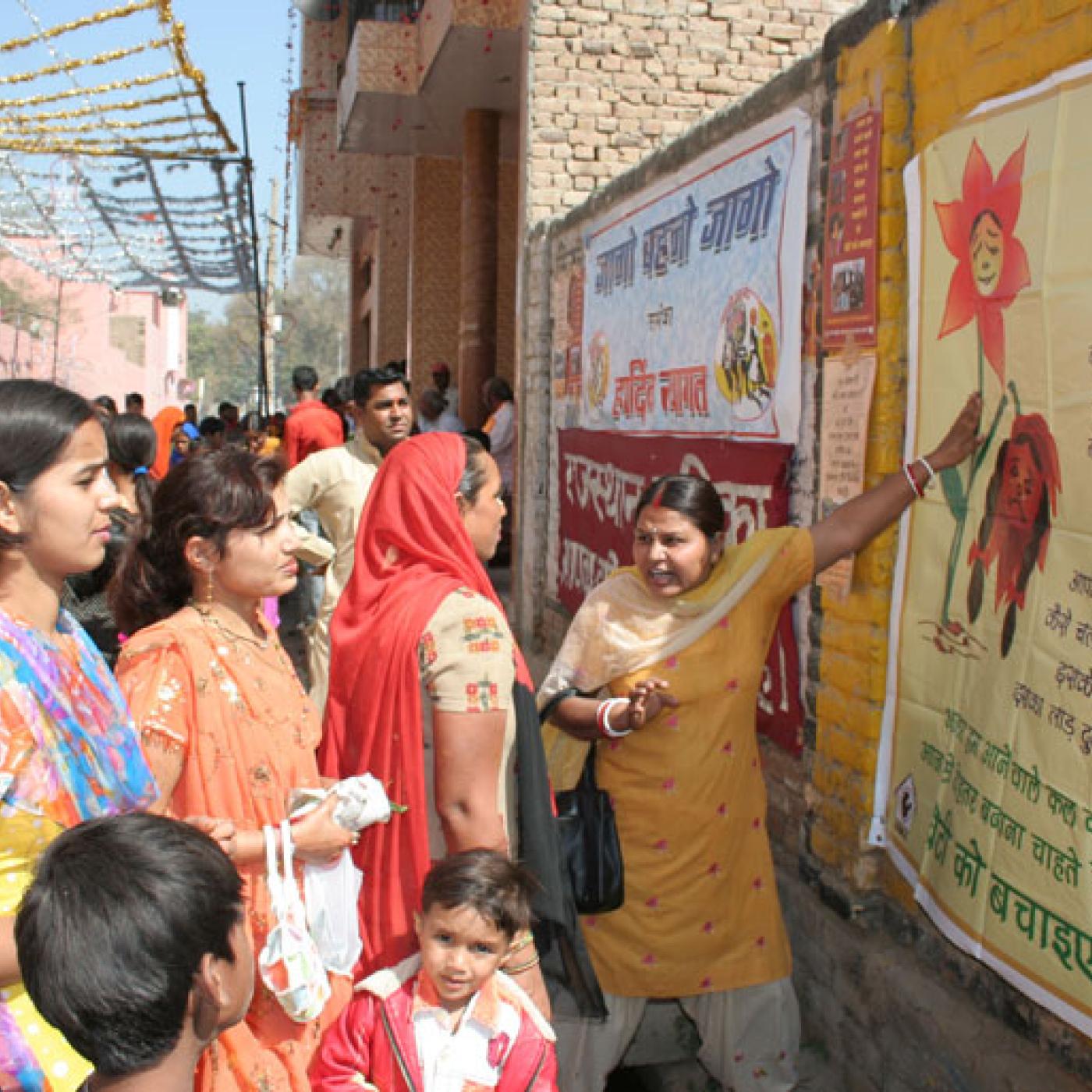Tools & Resources
Filter by
Type
Publication date
Language
Type
Publication date
Language
News & Updates
Feature
IFES Celebrates International Day of Persons with Disabilities
The annual International Day of Persons with Disabilities, held on December 3, commemorates the human rights of persons with disabilities. This year we also celebrate the 10th anniversary of the United Nations Convention on the Rights of Persons with Disabilities (CRPD).
Election FAQ
Elections in Macedonia: 2016 Parliamentary Elections
On December 11, Macedonians will vote for their members of Parliament. Of the 123 seats in the Parliament, 120 are elected from six 20-seat constituencies in Macedonia using closed list proportional representation.
News & Updates
Press Release
IFES Announces Winners of 2016 Photography Contest
Two compelling photographs depicting insightful moments of Election Day in India and voter registration in Nepal have won the top prizes of the International Foundation for Electoral Systems’ (IFES) 2016 Photography Contest. They were part of 10 photographs selected as finalists among the more than 100 images that were submitted to the democracy-themed competition.
News & Updates
Feature
IFES Organizes First Pacific Regional Disability Rights Dialogue
The International Foundation for Electoral Systems (IFES), in collaboration with the Fijian Elections Office, the Pacific Disability Forum, and the Pacific Islands Forum Secretariat held the first ever Pacific Regional Disability Rights Dialogue from May 11-13. The conference, which took place alongside the Pacific Islands, Australia and New Zealand Electoral Administrators Network (PIANZEA) annual meeting in Nadi, Fiji, is the first region-wide gathering of election management officials and disability rights advocates from across the Pacific.
News & Updates
Feature
Dignity for Indian Girls
Female feticide, infanticide and neglect of girls has been widely practiced in India with alarming implications on the rate of missing girls. By 2005, India’s ratio of girls to boys had declined so steeply that there were fewer than 900 Indian girls born for every 1,000 boys – one of the lowest rates worldwide.
News & Updates
Feature
An Undocumented Wonder: The Making of the Great Indian Election
On September 23, 2014, the International Foundation for Electoral Systems (IFES) hosted a conversation between IFES President and CEO Bill Sweeney and the former Chief Election Commissioner of the Election Commission of India (ECI), S.Y. Quraishi. Sweeney and Quraishi discussed Quraishi’s book An Undocumented Wonder: The Making of the Great Indian Election, a first-person account of the recent electoral history of India and a must-read for those interested in understanding how the world's largest democracy works. Quraishi was also presented with the IFES’ prestigious Hutar Award, which honors those who express a commitment to improving democratic practices.
News & Updates
Feature
An Undocumented Wonder: The Making of the Great Indian Election
On September 23, 2014, the International Foundation for Electoral Systems (IFES) hosted a conversation between IFES President and CEO Bill Sweeney and the former Chief Election Commissioner of the Election Commission of India (ECI), S.Y. Quraishi. Sweeney and Quraishi discussed Quraishi’s book An Undocumented Wonder: The Making of the Great Indian Election, a first-person account of the recent electoral history of India and a must-read for those interested in understanding how the world's largest democracy works. Quraishi was also presented with the IFES’ prestigious Hutar Award, which honors those who express a commitment to improving democratic practices.
During the event, Sweeney marveled at the immense technical undertaking of elections in India, noting that as the Chief Electoral Commissioner of India, Quraishi oversaw elections that involved over 11 million Indian government personnel. Indeed, elections in India generate both wonder and interest globally. Polls have been held at regular intervals in the country since independence, and on an unprecedented scale, surmounting the massive challenges posed by the geography of the land and the diversity of the Indian populace.
During the event, Sweeney marveled at the immense technical undertaking of elections in India, noting that as the Chief Electoral Commissioner of India, Quraishi oversaw elections that involved over 11 million Indian government personnel. Indeed, elections in India generate both wonder and interest globally. Polls have been held at regular intervals in the country since independence, and on an unprecedented scale, surmounting the massive challenges posed by the geography of the land and the diversity of the Indian populace.
Election FAQ
Elections in Fiji: 2014 General Elections
On September 17, Fijian citizens will elect fifty members of Parliament, with the party winning a majority or plurality of seats tasked with choosing a Prime Minister and forming a government.
News & Updates
Interview/Speech/Testimony
IFES Q&A with Former Chief Election Commissioner of India Dr. SY Quraishi
As a former Chief Election Commissioner of India, Dr. SY Quraishi has a deep understanding of the intricacies of how the world’s largest democracy works. He also has more than 35 years of experience in civil service. Dr. Quraishi is well known in India and abroad as a development thinker, for his inclusive style of leadership, and for bringing together wide varieties of groups and institutions to achieve the common objectives of development. In this Q&A, Dr. Quraishi discusses challenges the Election Commission of India (ECI) faces in preparing to conduct credible elections and shares lessons learned. India’s five-week general elections started on April 7.
News & Updates
Feature
A Rights-Based Approach to Electoral Security
In India, Maoist rebels killed 14 people in attacks in Chhattisgarh state as part of a campaign of violence aimed at disrupting the ongoing five-week national election in the world’s most populous democracy. Similarly, in the days leading up to the April 5 presidential election in Afghanistan, the Taliban unleashed a campaign of violence to discredit the electoral process and keep voters from the polls. Many hope this election will be known for delivering the first peaceful transfer of power in the country’s history.






